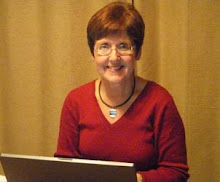In today's entry, I'll share some of our strategies for sorting through Mom’s entire household. The How, What and Why of our decisions around all the “stuff”. As I said in previous entries, it is incredibly important to involve your parent in all these decisions.
1. Steps we followed:
a. We went to Kmart and bought big plastic tubs (with lids); about $4 each. These were essential for our sorting process
b. We categorized what we had to sort through by item and/or room:
i. Paperwork
ii. Kitchen stuff
iii. Clothing
iv. Furniture
c. Paperwork (mail, statements, bills, etc): This was stuffed in desks, dresser drawers, bags, etc. We set up a spot in the living room to stage all this stuff. My husband’s main job (during the last week before move out) was to go through all of it. He acted upon any bill that looked unpaid, trashed all the ads, etc. (SPECIAL NOTE: There was a huge amount of old paper with full credit card number and social security number on that. He put all this stuff in a huge bin; we brought it home and paid for it to be shredded.)
d. Kitchen stuff: There were many, many mis-matched sets of dishes and old cookware. Mom wanted to keep most of it. So, my husband set a table with 8 place settings of her favorite dishes and cookware for her new apartment kitchen. When she saw how this would meet her needs, she agreed and we gave the rest away.
e. Clothing: My mother had been a shopaholic. There was a lot still with tags on it that didn’t fit her. She agreed to give all that away to a Mission Store (this was important to her to know someone in need would be wearing her clothes). To her surprise, we found things like 40 black skirts in the same color, style and make. She usually would decide just to keep just a couple. (NOTE: this is a very emotionally draining process ...so do this in short time segments.)
f. Furniture: This took a lot of time. We ended color coding each item; green: for keep and move; red: for give-away; yellow: for trash. Our biggest challenge was finding a place that would come into the house and haul her furniture away for donation. I did not find this place until the day before moving. As with every other challenge…..you must keep pursuing a solution. Never give up!
g. What to buy new for her retirement apartment: Her living room couch and chair were soiled and also broken. Her mattress set was 30 years old. So, she agreed she wanted a new couch and lazy-boy chair. We found these pieces at her favorite department store on sale, plus they gave her one year interest-free to pay these off. We went to a mattress store, and found an excellent set (with a low box springs), and again got her one-year interest free. On of her favorite new purchases was a new comforter.
2. Lessons Learned:
a. Plan and think ahead. Given the timeframe for the move, map out the major steps you’ll need to accomplish. I listed all this in an Excel spreadsheet.
b. Track all the vendors, contacts and important names and numbers, and ‘next steps’. Again, I captured all this in an Excel spreadsheet and printed for my mother. When I had to return home, she kept the list on her frig, for easy reference.
c. Keep a pulse on how your parent is doing (physically and emotionally during all this). You may need to slow down but you can’t stop the process. You have to remind them why they are doing this and what it will mean to them in the end.
d. When your parent gets hung up looking through photos and memories, ensure them that you are saving all this. Again, we used a big bin to put all this in. Later, in the midst of winter, she could sort through these.
e. Consider things that are important to your parent. My mother wanted to take her piano with her. We made a place for it to fit in her apartment. Also, color (such as her new purple comforter) was important to her.
f. As early as possible, reserve the moving van company and other vendors (we used one just for senior moves and they book up fast).
g. Know that you will go through times where you are exhausted, dirty from cleaning, frustrated from delays, not finding resources when you need them. Often I would go outside late at night and just de-compress.
h. Always have a vision (and share it) for what your parent’s new life will be like.






